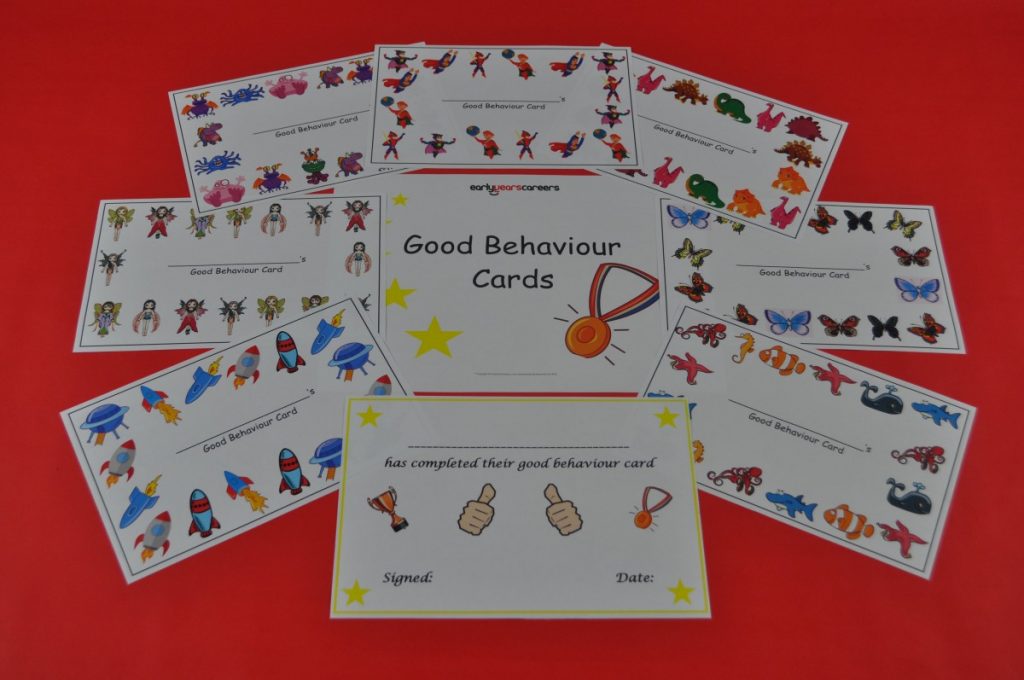Why early years settings shouldn’t use stickers
Many early years settings and nursery practitioners choose to use stickers to reward children through the day for desired behaviour. Stickers are support to work as an aid in positive reinforcement which can be seen as highly effective when looking back at childcare theories. Positive reinforcement works by praise or reward every time a child completes something well or behaves in a positive manor. It is hoped that through rewarding the child they will continue to act in the same and then acquire the skill learning that that is the correct way to behave.
How positive reinforcement can be seen in early years settings
There are a variety of ways positive reinforcement can be seen across childcare settings including:
* Praise and encouragement
* Individual sticker charts – These can be great motivation for children to keep displaying positive behaviour. Children often love receiving stickers and even children with unruly behaviour can often been supported through the use of sticker charts
* House Points – These work in a similar way to sticker charts however these work on a group basis. Children have to work together so their ‘house’ or group receive the most house points
* Hole Punch cards – Work in the same way as sticker charts but save money on using stickers and instead a child receive a hole punch.
* Individual behaviour system – These often work on a traffic light system where a child starts the day on green, if they receive a warning they move the peg or picture down to yellow and then if the unwanted behaviour continue they move down to red. Often being on red will hold a consequence.
* Class behaviour charts – These work in a similar way to individual charts
* Stamps – This is often seen in schools and great work is stamped. Stamps can also be used instead of stickers
* Certificates – Certificates can be handed out for many reasons often through a star of the week or for those who achieve a certain amount of stickers/hole punches/ stamps.
Why some believe stickers/ hole punches and stamps should not be used
Positive reinforcement although great for all children, can often swing towards supporting some children more than others, depending on the practitioner who is handing out the rewards. Some practitioners will use stickers to really help a child who is struggling to grasp the rules and so uses stickers to heavily support a child. This often leads to this child receiving a lot more stickers then a child who has full understanding of the rules and behaves in a positive manor at all times. This can lead to the child who always displays positive behaviour feeling unappreciated and undervalued and in some cases can lead to them acting out in order to receive the same rewards as the child who is experience heavy positive reinforcement.
This can also work in the opposite way with the child who is always well behaved receiving lots of stickers and rewards while the child who is struggling to grasp the rules, being left out of receiving any positive reinforcement. This does not help support their personal, social and emotional development and can often lead to the child being detached from the group and uninterested by rewards and positive reinforcement.
Likewise some practitioners will heavily reward the child with the best behaviour, the child who is struggling with the rules but has been supported and positive reinforcement is being handed out regularly and an aid in developing desired behaviour skills and can leave the average child feeling left out and forgotten about.
How to resolve these situations
Often it will depend on the setting and the number of children within the group as to how reward type positive reinforcement turns out. Often in a larger setting with high numbers of children in each group is where the problems for rewards can be seen. This can sometimes be resolved by splitting the children and rewarding them via key group so each child has a great chance at being chosen to receive a sticker. Also by ensuring that each child is given the opportunity across the week to receive a sticker or some form of positive reinforcement.

